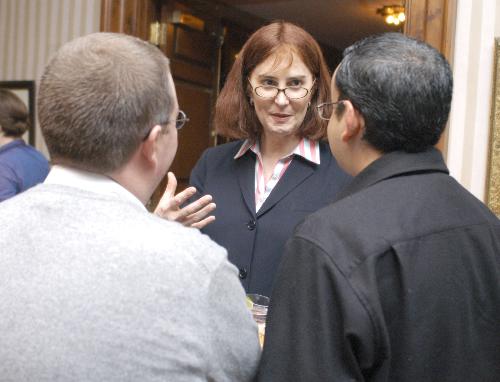
News
Summers Will Not Finish Semester of Teaching as Harvard Investigates Epstein Ties

News
Harvard College Students Report Favoring Divestment from Israel in HUA Survey

News
‘He Should Resign’: Harvard Undergrads Take Hard Line Against Summers Over Epstein Scandal

News
Harvard To Launch New Investigation Into Epstein’s Ties to Summers, Other University Affiliates

News
Harvard Students To Vote on Divestment From Israel in Inaugural HUA Election Survey
Trans Advocate Lauds Harvard
Harvard’s ‘gender identity’ policy leads other schools to follow suit

The establishment of protections for transgender people in Harvard’s nondiscrimination policy has had effects on campuses “across the country,” including Princeton University, according to one of the nation’s leading lobbyists for transgender rights.
Mara Keisling, the founding executive director of the National Center for Transgender Equality, praised the efforts of Harvard’s Bisexual, Gay, Lesbian, Transgender, and Supporters Alliance (BGLTSA) in a lecture last night at Harvard Hall.
“I was working on the Princeton policy, and the H-word was bandied about quite a bit,” she said. Last week, Princeton’s administration added provisions for “gender identity and expression” into its nondiscrimination policy.
Harvard announced a similar decision on April 11.
The speech was this year’s Papadopoulos Lecture, coordinated by BGLTSA in memory of Nicholas Papadopoulos, a graduate of Harvard’s Graduate School of Arts and Sciences (GSAS) who died of complications due to AIDS in 1994.
Keisling, a 46-year-old GSAS graduate who identified as a male while attending Harvard, and who rallied in support of Harvard’s policy change last month, won the “BGLTS Person of the Year Award” at last night’s event.
“So much spectacular stuff is going on,” she said, stating that 31 percent of the U.S. population currently lives in legal jurisdictions where transgender individuals are protected from discrimination. She said that proportion was only 5 percent in 2002.
But the movement still faces challenges. Keisling said that 57 percent of transgender people in San Francisco had experienced job discrimination, a fact all the more troubling because the city is “possibly the most friendly place to be transsexual in the country.”
Keisling summed up the need for self-determination in the transgender movement by telling an anecdote about three mice who go to heaven, ask an angel for rollerskates, receive them, and are subsequently eaten by three cats who praise heaven’s “meals on wheels” program.
“The point of that story,” Keisling said, “is that if you’re not part of your own liberation, if it’s being done by other people, even if they’re well-intentioned, you might get eaten.”
—Staff writer Abe J. Riesman can be reached at riesman@fas.harvard.edu.
Want to keep up with breaking news? Subscribe to our email newsletter.
